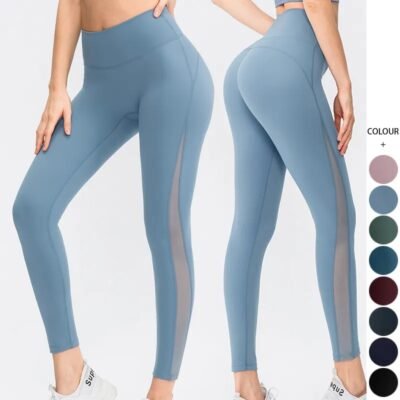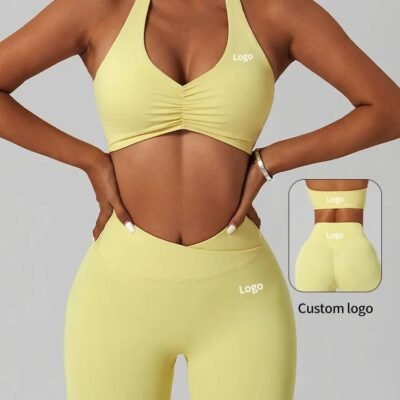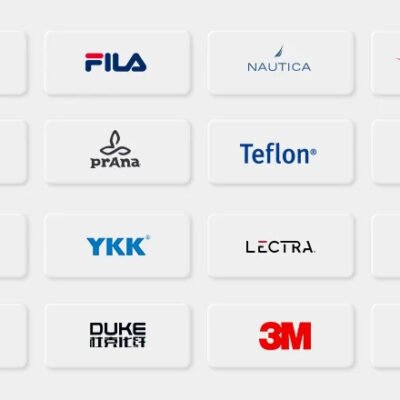Yoga has grown tremendously in popularity, leading to an increased demand for quality yoga clothing. Whether you’re a retailer looking to stock your store or an individual wanting to ensure you get the best apparel, selecting a reliable supplier is crucial. This article will guide you through the key factors to consider when choosing a quality yoga clothing supplier.
**1. *Quality of Materials*
The fabric used in yoga clothing is one of the most critical factors. Yoga clothes should be made from materials that are:
- Breathable: Fabrics like cotton, bamboo, and certain blends allow for ventilation, helping to keep the body cool during intense sessions.
- Moisture-Wicking: Synthetic fibers like polyester or nylon are excellent for wicking away sweat, keeping the skin dry.
- Stretchable: Yoga involves a lot of stretching, so fabrics with a good amount of elastane (spandex) provide the necessary flexibility without losing shape.
- Soft and Comfortable: The material should feel soft against the skin, avoiding irritation during movement.
When evaluating a supplier, ask for fabric samples or test their products yourself to ensure they meet these quality standards.
2. Ethical and Sustainable Practices
Consumers are increasingly concerned about the ethical and environmental impact of the products they purchase. A quality yoga clothing supplier should:
- Use Sustainable Materials: Look for suppliers who use organic cotton, recycled polyester, or other eco-friendly materials.
- Fair Labor Practices: Ensure the supplier adheres to fair labor practices, providing safe working conditions and fair wages to their workers.
- Eco-Friendly Manufacturing: Suppliers that use environmentally friendly dyes and processes, and minimize waste, demonstrate a commitment to sustainability.
Choosing an ethical supplier not only aligns with modern consumer values but also enhances your brand’s reputation.
3. Range of Products
A good yoga clothing supplier should offer a wide range of products to meet the diverse needs of your customers. Consider the following:
- Variety of Styles: Look for suppliers who offer different types of yoga apparel, including leggings, sports bras, tops, and jackets.
- Size Inclusivity: Ensure the supplier offers a wide range of sizes to cater to all body types.
- Color and Design Options: The supplier should provide a variety of colors, patterns, and designs to appeal to different tastes.
Having access to a broad product range allows you to cater to a wider audience and meet varying customer preferences.
4. Customization and Private Labeling
If you’re a retailer looking to build your brand, customization options are essential. Quality suppliers often offer:
- Private Labeling: The ability to label the products with your brand name, enhancing brand recognition.
- Custom Designs: Some suppliers may offer customization options, allowing you to create unique designs exclusive to your brand.
- Low Minimum Order Quantities (MOQs): Especially important for startups, some suppliers offer low MOQs for custom orders, allowing you to test the market without large upfront investments.
Check if the supplier can accommodate your customization needs and inquire about their MOQ policies.
5. Price vs. Quality Balance
While price is always a consideration, it’s essential to strike a balance between cost and quality. Cheap yoga clothing might be tempting, but it could compromise on durability, comfort, and overall performance. When choosing a supplier:
- Evaluate the Price-Quality Ratio: Compare prices with the quality of the materials and workmanship. Sometimes paying a bit more ensures better quality.
- Request Samples: Before making large orders, ask for samples to assess the quality yourself.
- Consider Long-Term Costs: High-quality products might be more expensive initially but can result in better customer satisfaction and fewer returns, saving money in the long run.
6. Supplier Reliability and Reputation
The reliability of your supplier is crucial to maintaining consistent stock and meeting customer demand. To evaluate a supplier’s reliability:
- Research Reviews and Testimonials: Look for reviews from other businesses who have worked with the supplier to gauge their reliability and customer service.
- Check Their Track Record: A supplier with a long history in the industry is often more reliable.
- Customer Service: Responsive and supportive customer service is vital. Ensure the supplier is easy to communicate with and responsive to your needs.
- Delivery Times: Inquire about their delivery times and how they handle large orders, especially during peak seasons.
A reliable supplier ensures smooth operations, allowing you to focus on growing your business.
7. Flexibility and Scalability
As your business grows, you may need to scale up your orders. A good supplier should be able to:
- Handle Large Orders: Ensure the supplier has the capacity to fulfill larger orders as your business expands.
- Adapt to Your Needs: Flexibility in production schedules, product customization, and order quantities is essential as your needs evolve.
Choosing a supplier that can grow with you ensures long-term business success.
Conclusion
Selecting a quality yoga clothing supplier is a critical step in ensuring the success of your business or in making informed purchasing decisions. By considering the quality of materials, ethical practices, product range, customization options, price vs. quality, supplier reliability, and flexibility, you can find a supplier that aligns with your values and business goals. Remember, the right supplier not only provides great products but also contributes to the overall growth and reputation of your brand.






